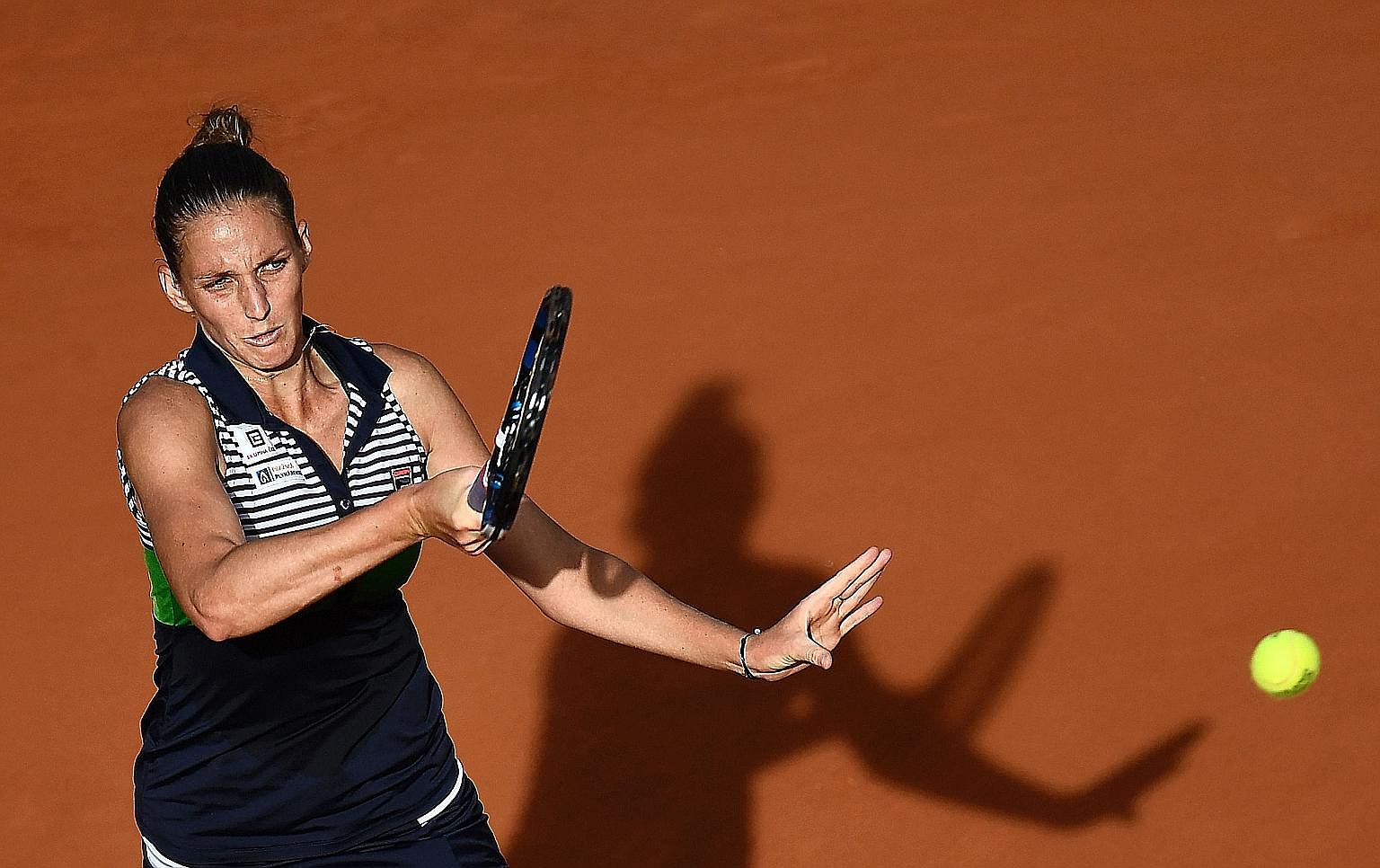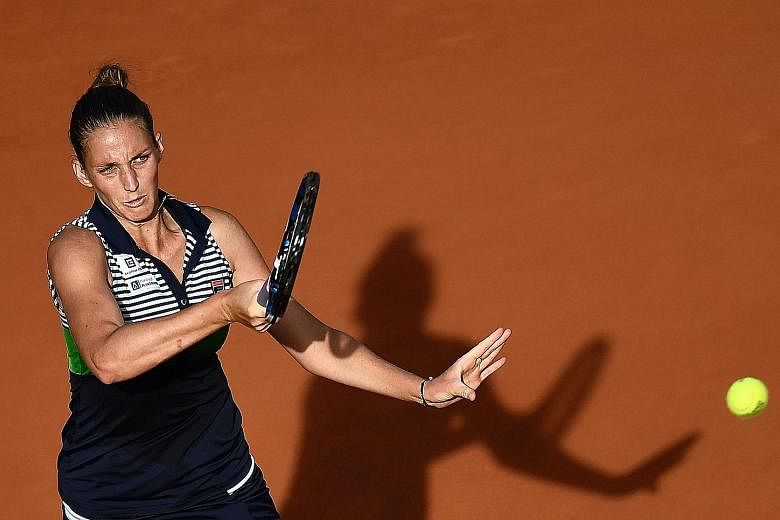There is a lot of talent on the WTA Tour. People focus sometimes too much on the rankings, but I can tell you from No. 1 to No. 100, every player is talented and anyone can beat anyone on any day.
The thing that separates the top players from everyone else is that our B and C levels are still good enough to win matches. We win more matches because we have learnt how to survive on the days when we are not at our best.
It is a skill that I'm only recently learning to master. A lot of people have told me that I'm too hard on myself when I'm not playing as well as I want to play. All of the best athletes are perfectionists, but sometimes I want it too much and then I'm missing my shots even more than usual.
I'm working with my coach to improve my focus and intensity in my matches so that I don't get distracted by my own frustration. The work we've done really paid off in Paris this month.
During the French Open, I was a set away from becoming the first Czech woman to hold the WTA No. 1 ranking.
Had I beaten Simona Halep to make my second Slam final in my last three Majors, I would have overtaken Angelique Kerber at the top.
It would have been an incredible achievement. I came to Paris just hoping to win some matches - I had never made it past the second round - and there I was, just a few games from being No. 1.

The funny thing is, I don't think I've actually played to the best of my abilities this season.
In Paris it became a running joke with the reporters because I got the sense they were all in shock at how badly I was playing while going further than I had ever gone at Roland Garros.
I know I'm dangerous even without playing my best tennis. So far this year, there were not many matches where I played amazing tennis. I started the year with two titles in Brisbane and Doha, but I don't think I played great tennis there. Somehow I still won.
This has been an important thing for me to learn: I don't have to be perfect to win.
Before I made the US Open final last September, I had never made it past the third round of any Major. I don't know why I couldn't do it, but after snapping that streak in New York, I made the quarter-finals or better at the last two Slams.
I think I used to put too much pressure on myself to play at a good level every single time I took to the court.
Now, with experience, I'm learning that I don't have to play the best tennis - as long as I'm focused, fighting, and not scared to lose. This changed a little bit.
In the past I would panic if my game was not flowing on the court. Now I can accept the bad days and just focus on doing what I can to win and have the chance to fight again another day.
It helps that my game is built on two big weapons: My serve and my forehand. If at least them is working, I think I have a chance to beat anybody. So that's the first thing.
The other thing is that I have proven to myself that if I play against the top players, I can play at a really high level. It doesn't have to be at the beginning of the tournaments.
At the French Open, I had what looked like, on paper, a very easy draw in the first week, playing lower-ranked players I had not played before.
Playing on my worst surface, clay, I had to fight through two three-set matches to make the semi-finals.
Sometimes you're playing well and you lose. I experienced this in Rome. I felt I played really well and I still lost in two sets to Elina Svitolina.
In Paris, I did not feel I was playing well but I was somehow mentally there and still fighting.
If you win, you give yourself another chance to get better and to find your best tennis. That's what happened to me in the French Open semi-finals.
Playing against a player whom I think is the best clay-court player in the game, Halep, I played my best match of the tournament. In fact, it may have been my best match on clay ever.
If the match was played on hard court or grass - two surfaces I love - maybe the result would have been different.
In the end, I lost in three sets, but I left Paris full of positive vibes and belief.
Right now I think I have a chance on any surface, no matter how I am playing.
With my worst surface now behind me, I'm ready to continue my charge towards the No. 1 ranking.

